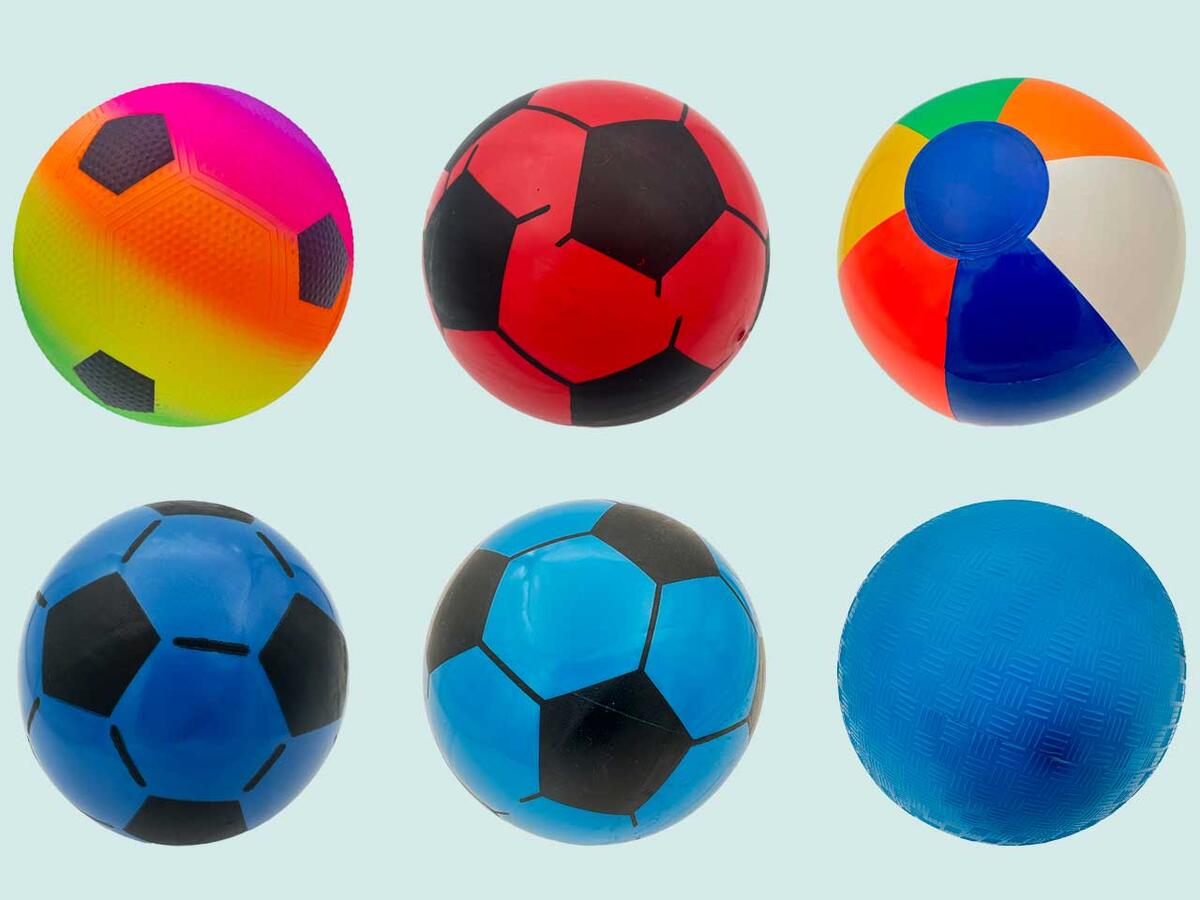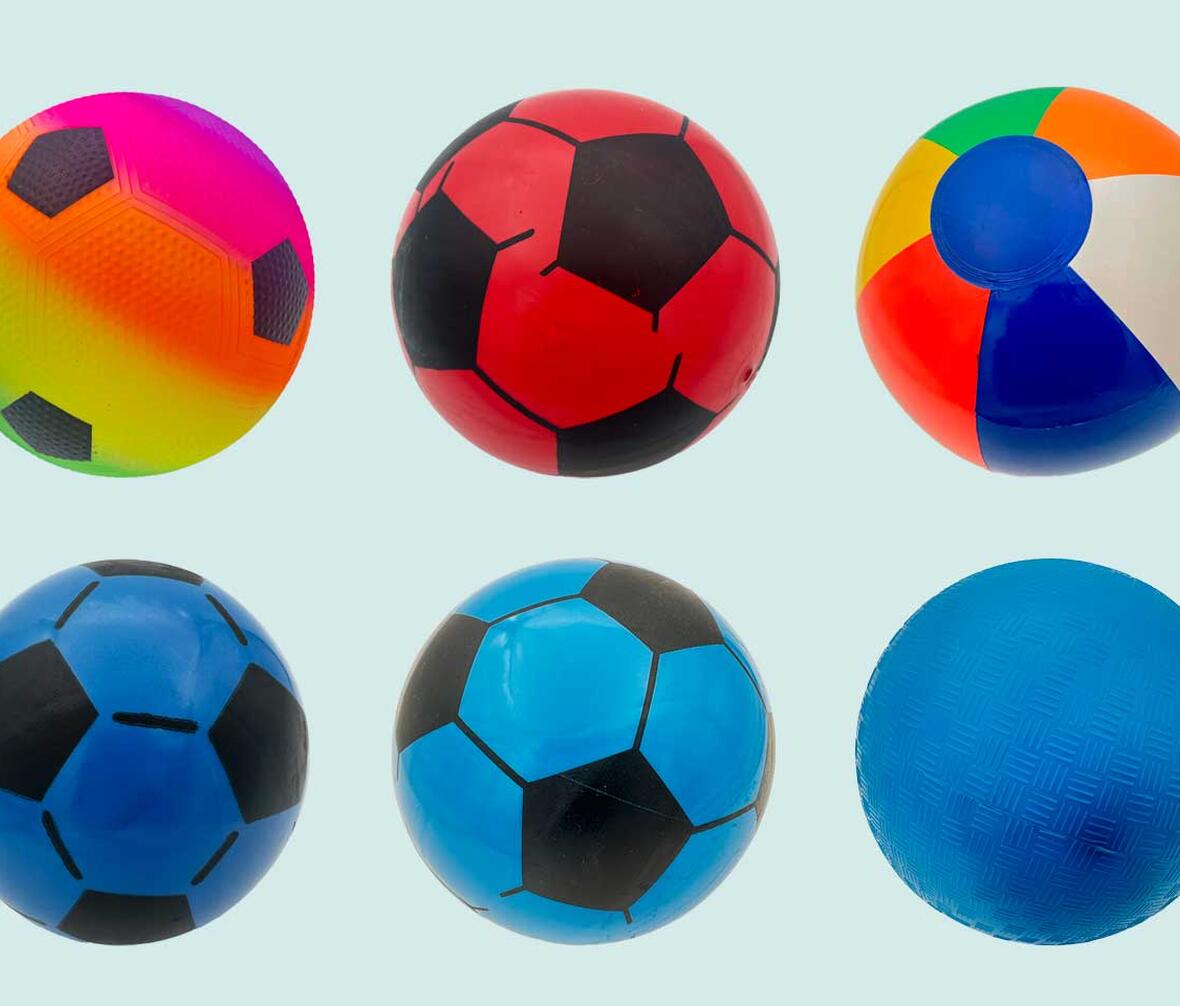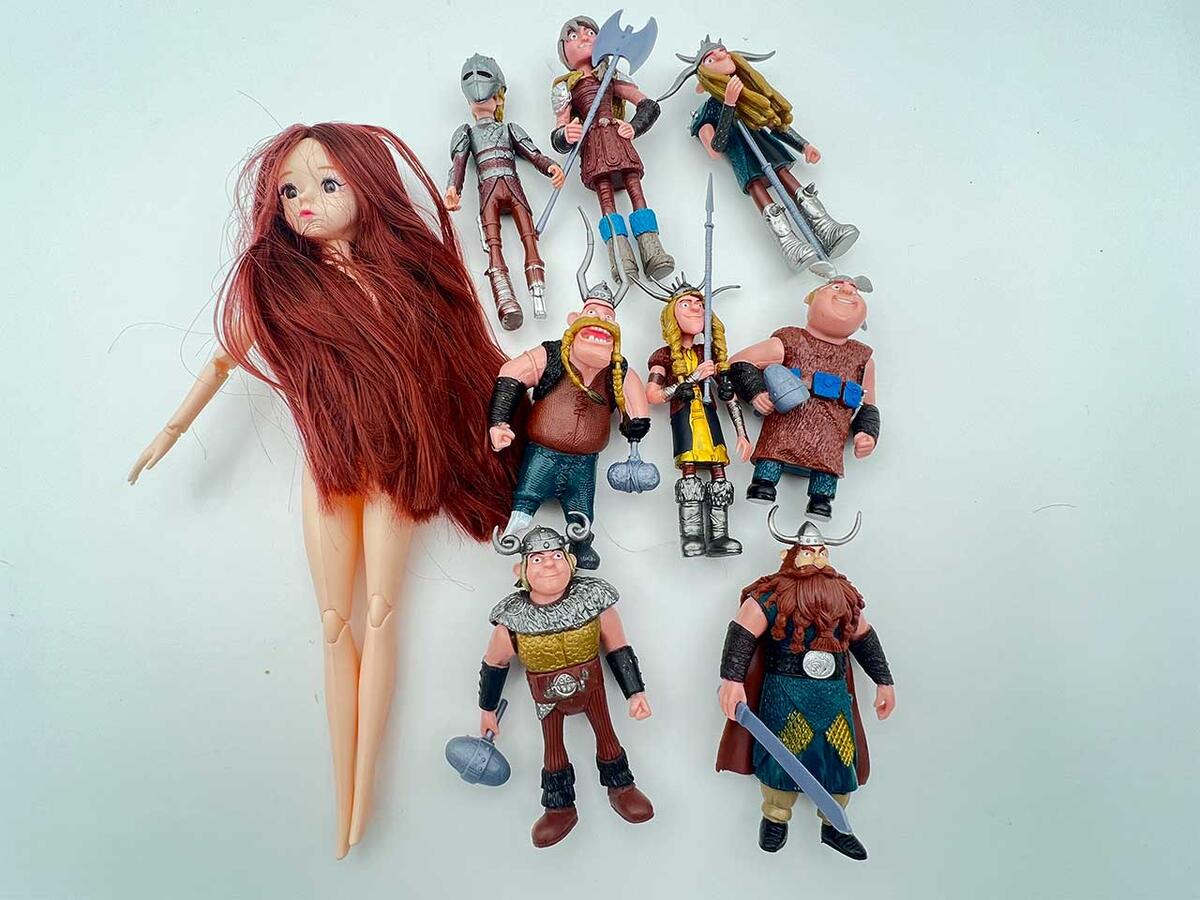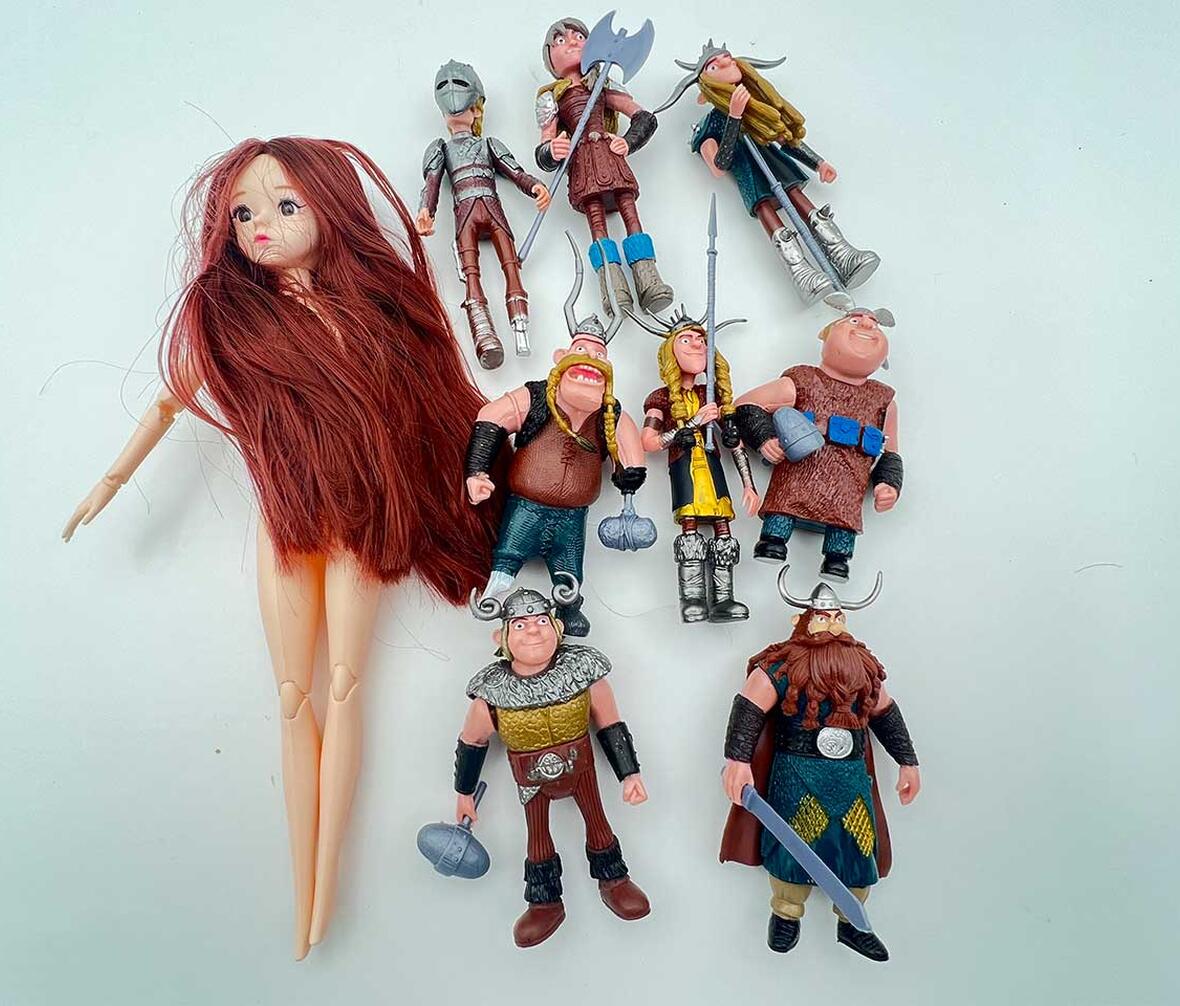One in five toys bought online contain harmful phthalates
Cheap plastic toys from popular online shops like Shein and Temu contain excessive amounts of some of the most harmful phthalates.
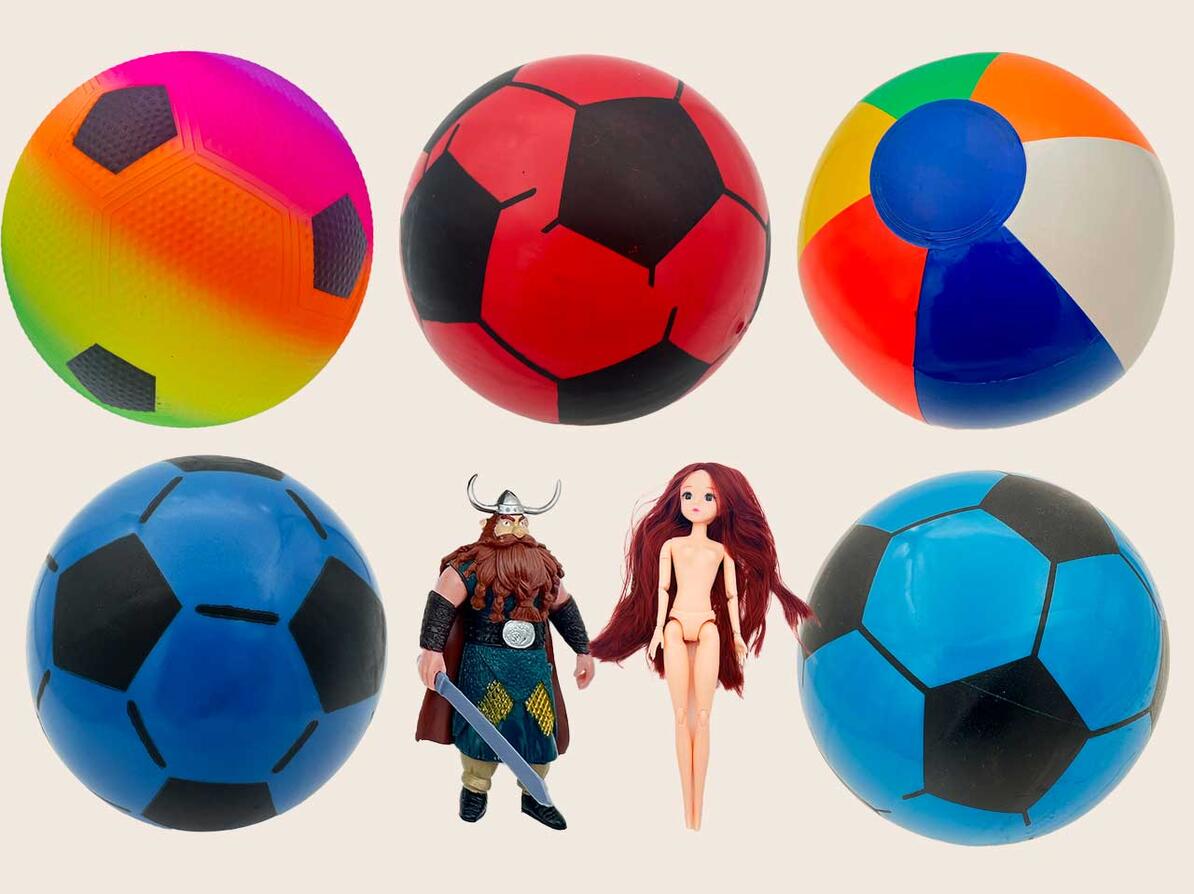
Toys for kids are inexpensive to buy on online platforms outside the EU. But what about the chemicals you’re getting with your purchase?
The Danish Consumer Council THINK Chemicals have bought 40 different kinds of plastic toys from low-cost online shops and tested them in a laboratory for harmful phthalates, which are banned in toys.
Every fifth plastic toy from Amazon, Shein, Temu, and Wish contains a higher level of hazardous phthalates than is permitted for toys in the EU.
Endocrine Disruptors and Harmful to Fertility
Several phthalates have been unwanted in products for years because they are endocrine disrupting in humans and negatively affects our reproductive health.
These include DEHP, DBP, DIBP, and BBP.
These four phthalates are banned in toys in the EU - three of them have been banned for many years. They are also prohibited in products intended for indoor use and for products that we are in direct skin contact with.
In toys and indoor products on the European market, there must not be more than 0.1% by weight of these four phthalates.
Undesirable Phthalates in Balls and Dolls
But how severe is the issue with toys from some of the most popular online shops?
In our study, we found the three phthalates DEHP, DBP, and DIBP in excessive amounts in eight of the 40 products.
The highest content was found in a plastic ball from Amazon, containing nearly 33 percent of the phthalate DBP. A doll from Shein contained 14 percent of the phthalate DEHP, and we found 7 percent of the phthalate DIBP in a ball from Temu.
High levels of these problematic substances were mainly found in plastic balls, with six out of the eight products containing excess phthalates being balls.
In the Danish article you can se al full review of the tested products and the amont of phtalates found in the products.
“It is deeply concerning again to see examples of toys sold on online platforms like Temu and Wish that do not comply with EU chemical regulations. These products may pose a danger to children. Consumers simply cannot be certain about products purchased on online platforms where the seller is from a third country, as these products, in many documented cases, do not meet the EU regulations. Therefore, my strong recommendation is to avoid purchasing products from these platforms," says Minister of the Environment Magnus Heunicke, regarding our investigation.
The Minister of the Environment also announced that a special task force will be established in Denmark to look further into the matter.
“The goal is that Temu and other online platforms shall comply with the EU’s product rules. We need to close the loophole in the EU legislation so that they are held liable for the products sold and marketed to EU citizens on their platforms. We must collectively insist that it is the platform’s responsibility that they do not have illegal and hazardous products for sale. In Denmark, we will now set up a task force to discuss enforcement options against the sale of products from third countries via online platforms like Temu," explains the Minister Magnus Heunicke.
Plastic Balls Have Previously Been a Problem
This is not the first time that plastic balls with excessive phthalate content have been identified, and it has also been an issue for products bought within the EU borders before.
In 2021, Forbrugerrådet Tænk Kemi was part of a European test of sports equipment, where an exercise ball from the Czech Republic and a Pilates ball from Luxembourg contained 35 percent and 47 percent DIBP, respectively. That same year, we tested plastic products purchased in Denmark, where we found a toy ball on the Danish market containing high levels of harmful phthalates.
When violations of chemical regulations are found within the EU, authorities can act against the producers. This does not apply to online platforms where consumers typically purchase products directly from companies outside the EU.
“It is a huge problem that these platforms are not subject to the rules we have established in the EU over many years to protect consumers, especially children, from some of the most problematic chemicals,” says Stine Müller, Test Manager at The Danish Consumer Council Think Chemicals.
“We often say that the chemical legislations in EU are not strict enough, but they are certainly much better than nothing. And the lack of chemical requirements is precisely what you get when shopping on major online platforms like Shein and Temu. It is a huge problem that these platforms are not subject to the rules we have built up in the EU to protect consumers and, particularly, children against some of the most problematic chemicals, which Danish and European companies selling the same types of products are required to comply with,” explains Stine Müller.
Toys from Shein Are the Worst
The Danish Consumer Council Think Chemicals purchased toys from Amazon, Shein, Temu, and Wish.
The proportion of toys with excessive phthalate content is almost consistent across the four platforms, but the worst results were for products purchased on Shein.com, where 2 out of 8 products exceed the limit. Wish.com ranks lowest, with phthalates in 2 out of 11 products, approximately 18 percent.
We have contacted all companies about our test results. Amazon, Shein, Temu, and Wish have removed the affected products from their websites.
How we tested
-
We bought 40 different plastic toys from online marketplaces from outside the EU and sent them to a laboratory to be tested for the content of phthalates including BBP, DBP, DEHP and DiBP.
The laboratory has analyzed whether the plastic toys comply with the EU Toy Safety Directive for phthalates regarding the content of phthalates.
The result of the analysis is that eight out of 40 plastic toys bought outside the EU exceed the permitted limit of 0.1 weight percent for phthalates in toys.
Phthalates are unwanted in the EU
13 phthalates are on the EU's list of particularly problematic substances. 12 of these phthalates are classified as harmful to reproduction, and in addition four phthalates, DEHP, DBP, DIBP and BBP, are also endocrine disruptors in humans.
The same 4 phthalates are prohibited in products for indoor use and products with which we are in direct, long-term contact, just as they are also prohibited in toys and children's articles.
Three other phthalates (DINP, DIDP and DNOP) are prohibited in toys and children's articles that may enter the mouth.
The limit for content is in all cases 0.1 percent (weight).
-
We have bought different types of plastic toys eg. balls, inflatable toys, various animal and cartoon characters, bath rubber ducks and dolls.
It is mainly among the balls that we find a high content of the problematic phthalates.
Six of the eight products with an excessively high content of phthalates are balls.
In addition, there was also a doll and some cartoon characters among the eight products.
According to the legislation, balls can be toys or a sporting article depending on the design, marketing etc.
We consider that all the tested balls are toys, where there is a ban on the content of a number of phthalates in concentrations above 0.1%. However, the phthalates found are also prohibited in indoor products and products we are in direct contact with.
What the companies say
-
"On becoming aware of these concerns and as a matter of caution, we are immediately removing the products from our global platform whilst we conduct an investigation.
Third-party sellers are required to comply with SHEIN’s stringent product compliance standards and Code of Conduct as well as local laws and regulations, and where necessary, they are required to supply appropriate certifications. We also conduct regular targeted randomised testing on these products.
Upon learning of any claim against a product sold by a third-party seller, we immediately remove the product and conduct an investigation. If non-compliance is verified, we take action against the seller in accordance with our marketplace governance rules.
We are working to continually ensure our sellers meet compliance requirements and we assess seller performance on an ongoing basis on factors such as audit pass rates and customer feedback. Since the start of 2024, we have removed 266 sellers from the platform as part of this effort."
-
“After investigating, we've ensured that the product listings in your report has been made unavailable for purchase on the Wish platform”.
-
“Thank you for bringing this to our attention.
At Temu, product quality and consumer safety are top priorities. We take reports of non-compliance seriously and are fully committed to following the laws of the markets we serve.
After receiving the report, we immediately removed the flagged product listings and initiated further investigations.
All dealers on our platform must comply with applicable regulations. We will take action against those who violate these rules, which may include removing products, suspending sellers, or banning them from the platform.
We work with regulators and consumer groups to protect consumers and will continue to improve our processes to ensure a safe shopping experience.“
-
"After reviewing the products you flagged, we confirm that we have removed them from our stores. We are also reviewing the controls we have on these categories to better detect and mitigate similar issues going forward.”
